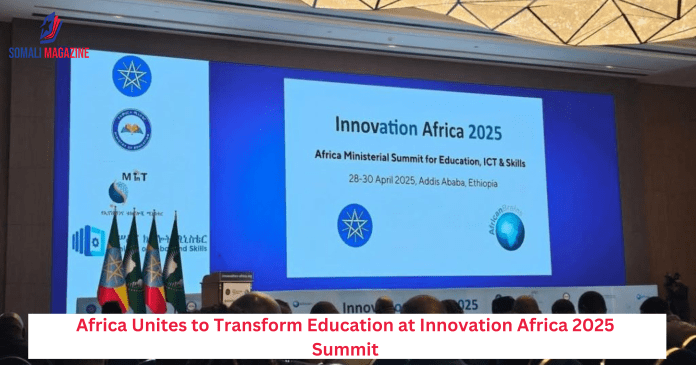Facebook Twitter (X) Instagram Somali Magazine - People's Magazine
Ghana leads the way with teacher licensing reforms, digital training, and cross-border collaboration to shape the future of African education.
A major three-day summit, Innovation Africa 2025, was held under the theme “Educate and Skill Africa for the 21st Century.” The event was honored by the presence of Ethiopia’s Deputy Prime Minister, Temesgen Tiruneh, and brought together ministers, policymakers, and education professionals from across the African continent.
The goal of the summit was to promote improvements in education, technology, and skill-building for young Africans. It built on the African Union’s 2024 declaration of the “Year of Education,” focusing on collaboration to boost educational quality and digital transformation across Africa.
One of the key discussions at the summit was about teacher licensing and professional development. During a panel discussion on “Ensuring the Professional Development of Quality Teachers to Deliver Curriculum Reform in Africa,” Ghana’s Deputy Minister of Education, Dr. Clement Apaak, shared insights into some of the reforms Ghana is implementing to improve teacher quality.
Dr. Apaak explained that Ghana has introduced a teacher licensing system to help teachers stay up to date throughout their careers. To keep their licenses, teachers must earn points by taking part in ongoing training and professional development programmes. This encourages teachers to keep learning new skills and stay informed about modern teaching methods.
As part of these reforms, colleges of education in Ghana are now offering Bachelor’s degrees in education, rather than just diplomas. This move aims to help teacher trainees become more reflective in their work and integrate digital teaching methods into their classrooms.
Another major initiative shared by Dr. Apaak is the Teacher Deployment and Retention Programme. This programme is designed to attract and keep teachers in underserved communities by offering incentives such as housing, extra allowances, and mentorship opportunities. According to Dr. Apaak, these support systems are vital for ensuring that children in remote and disadvantaged areas get access to quality education.
Beyond Ghana, Dr. Apaak emphasized the importance of sharing knowledge and working together across Africa. Ghana is taking a lead role in this by supporting inter-country teacher exchange programmes through partnerships with ECOWAS and the African Union. The goal is to allow teachers to gain experience in different countries and learn from each other.
Ghana is also helping by making digital resources available for free and taking part in teacher development networks like the African Union’s CESA Cluster. These efforts aim to create a stronger, more united education system across the continent.
Dr. Apaak summarized Ghana’s approach by saying, “Our vision extends beyond Ghana. We believe in sharing resources, strategies, and successes with our brothers and sisters across Africa.” This statement reinforced Ghana’s commitment to collaborative growth, not only within its own borders but also throughout Africa.
In conclusion, the Innovation Africa 2025 summit highlighted how African countries can work together to improve education. Through teacher licensing, professional development, incentives, and regional cooperation, countries like Ghana are taking important steps to build a skilled and educated African population ready to meet the challenges of the 21st century.

